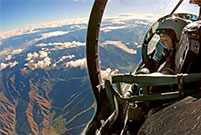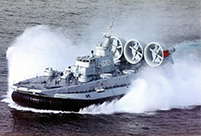

 |
| Fu Ying speaks at the 52nd Munich Security Conference. |
The U.S. has requested China's cooperation in resolving the the DPRK nuclear issue, at the same time, it planned to deploy the THAAD system with its allies, which confuses and angers the Chinese people, said Fu Ying, chairwoman of the Committee on Foreign Affairs of China’s National People’s Congress Saturday.
During a panel discussion of the 52nd Munich Security Conference, Fu Ying expounded China’s position on the North Korea nuclear issue, international orders and China-US relations.
When asked about whether China has “lost control” over North Korea, Fu responded with humor that this is a question with typical Western thinking.
China will never control other countries, or be controlled by them. Take the DPRK nuclear issue, on the one hand, the U.S. has requested China's cooperation, on the other hand, it planned to deploy the THAAD system with its allies, which confuses and angers the Chinese people, Fu explained.
As Chinese Foreign Minister Wang Yi told the media on Friday, China holds three principles: firstly, nuclear weapons must not exist on the Korean Peninsula under any circumstances; secondly, military action is not an option; and lastly China's national security must not be undermined, she added.
Endeavoring to address the concerns of each side, China advocates to eventually halt the nuclear program in North Korea by restarting the Six-Party Talks.
China is fulfilling its responsibility, while the U.S. should do the same, Fu said, adding that the key to solving the issue lies with the U.S.
Regarding China's role in the future, Fu thinks people should not evaluate China from the perspective of the U.S, and that China will not become another U.S.
China was among the most impoverished countries in the world 30 years ago. As a developing country, China will embark on a path of win-win cooperation with other countries in accordance with its own national conditions and visions.
In her keynote speech Fu also mentioned that American values, its system of military alliances and international organizations including the U.N. are the three pillars of the "U.S.-led world order".
China cannot totally agree with this order, as it believes in a U.N.-centered world order together with a series of international mechanisms, laws and principles.
As one of the founders, China has a sense of belonging to the current world order. Apart from benefiting from and contributing to the international order, China also participates in its reform, Fu said.
Kevin Michael Rudd, former Australian Prime Minister, NG Eng Hen, Singaporean Minister of Defense, and Robert Corker, Chairman of the U.S. Senate Committee on Foreign Relations also attended the meeting.
 Have you ever taken these beautiful subways in China?
Have you ever taken these beautiful subways in China? Chinese beauties, foreign models meet in Chengdu
Chinese beauties, foreign models meet in Chengdu Awesome! Aerial pictures taken on J-11 fighter
Awesome! Aerial pictures taken on J-11 fighter A foreign girl explains what China should be proud of
A foreign girl explains what China should be proud of Chinese navy's air-cushioned landing craft in pictures
Chinese navy's air-cushioned landing craft in pictures Chinese pole dancing master opens class in Tianjin
Chinese pole dancing master opens class in Tianjin Splendid Sichuan after snow
Splendid Sichuan after snow College girl of Vancouver crowned Miss Chinese Int'l 2016
College girl of Vancouver crowned Miss Chinese Int'l 2016 Pentagonal Mart becomes the largest vacant building in Shanghai
Pentagonal Mart becomes the largest vacant building in Shanghai Top 20 hottest women in the world in 2014
Top 20 hottest women in the world in 2014 Top 10 hardest languages to learn
Top 10 hardest languages to learn 10 Chinese female stars with most beautiful faces
10 Chinese female stars with most beautiful faces China’s Top 10 Unique Bridges, Highways and Roads
China’s Top 10 Unique Bridges, Highways and Roads I heart you!
I heart you! Real kung fu pandas
Real kung fu pandas Young Chinese feeling trapped by pressure to marry
Young Chinese feeling trapped by pressure to marry Monks rebuff allegations that religion is under tighter control
Monks rebuff allegations that religion is under tighter controlDay|Week